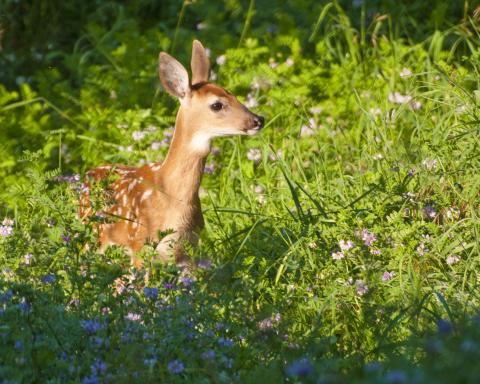If you care, leave it there.
Though it is human nature to want to help, the best thing to do when encountering an injured or orphaned wild animal is to leave it alone and undisturbed.
In many cases, it is against the law to capture, transport or possess wild animals. Generally, animals are better off left where they are found.
You are more likely to encounter or observe young, baby animals in the spring and early summer. Juvenile animals are common during these seasons as young animals begin to explore their environment, learn to forage/hunt and defend themselves. It is not uncommon to find young wildlife alone while the parents are hunting or foraging.
If you encounter what appears to be orphaned wildlife, you should leave them alone and immediately leave the area, allowing the parents to return and continue to care for their offspring.
In rare cases when you know the adults have been killed (i.e. hit by a car etc.), contact your state Fish and Wildlife Department. Many states have licensed rehabilitators who are well-trained to raise young wildlife and return them to the wild, if at all possible.
The same holds true for many other wildlife species including rabbits, foxes, coyotes, birds, and squirrels — If you care, leave it there.

